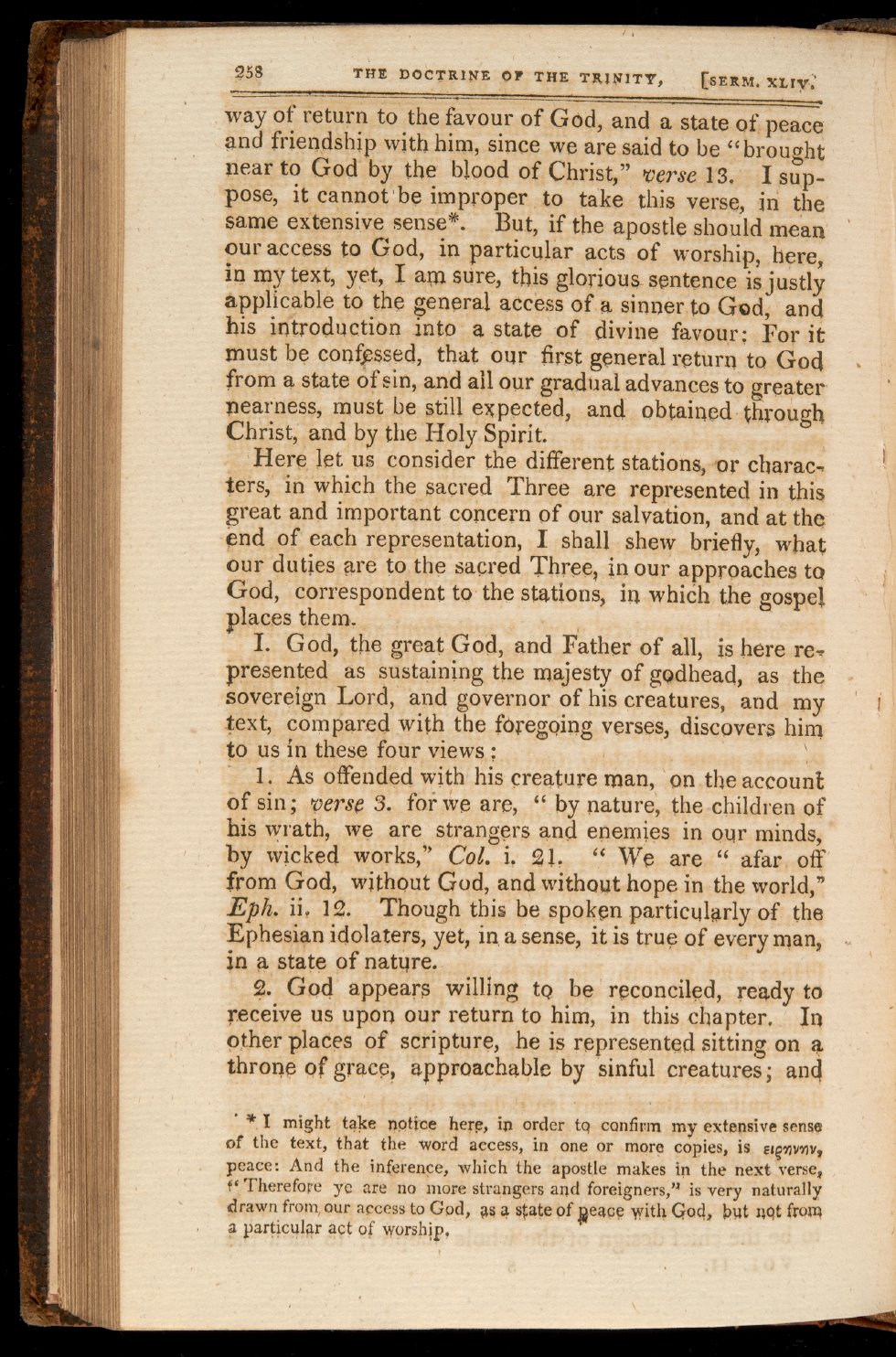

23S
THE DOCTRINE
Or
THE
TRINITY,
DEEM.
XLTV.
way
of
return
to the
favour
of
God,
and
a
state
of
peace
and friendship
with him, since
we
are
said to be
"brought
near
to
God
by
the
blood
of Christ,"
verse
13.
I
sup-
pose,
it cannot
be
improper
to
take
this
verse, in the
same extensive
sense
*.
But,
if
the apostle should mean
our
access to
God, in particular
acts
of
worship, here,
in
my
text, yet,
I
am
sure, this
glorious
sentence
is
justly
applicable
to
the general access
of
a sinner
to
God, and
his
introduction into
a
state
of
divine
favour:
For
it
must
be confessed,
that our
first general
return
to
God
from
a
state
of
sin,
and
all
our
gradual
advances
to
greater
nearness, must
be
still
expected, and obtained through
Christ,
and
by
the Holy Spirit.
Here let
us
consider the different stations,
or
charac,
ters,
in
which the
sacred Three are represented
in
this
great
and
important
concern
of
our salvation, and
at
the
end
of
each representation,
I
shall
shew briefly,
what
our
duties are
to the sacred
Three,
in
our approaches
to
God,
correspondent
to
the stations,
in which the gospel
places
them.
I. God,
the
great God,
and
Father
of
all,
is
here
re-,
presented
as
sustaining the
majesty
of
godhead,
as
the
sovereign Lord,
and governor
of
his
creatures, and
my
text,
compared with the
foregoing
verses,
discovers him
to
us
in
these
four
views
:
1.
As
offended
with his
creature
man,
on
the
account
of
sin;
verse
3.
for
we
are,
"
by
nature,
the children
of
his wrath,
we
are strangers and
enemies
in
our
minds,
by
wicked works,"
Col.
i.
21.
"
We
are
" afar
off
from God, without God, and without hope
in
the
world,"
.Eph.
ii.
12.
Though
this
be
spoken particularly
of
the
Ephesian
idolaters,
yet, in
a
sense,
it
is
true
of
every man,
in
a
state of nature.
2.
God appears
willing to be reconciled, ready
to
receive
us
upon
our return
to
him, in
this
chapter.
In
other
places
of
scripture,
he
is
represented
sitting
on
a
throne of
grace,
approachable
by
sinful
creatures;
and
*
I
might take notice here, in order to
confirm
my extensive
sense
of the text, that
the
word access, in one
or
more copies,
is
sir7vnv,
peace:
And the inference, which
the
apostle makes in
the
next
verse,
Therefore ye
are
no
more strangers
and foreigners,"
is
very naturally
drawn
from,
our access
to
God,
as
a
state
of peace
with God, but
not
from
a
particular act
of worship.

















